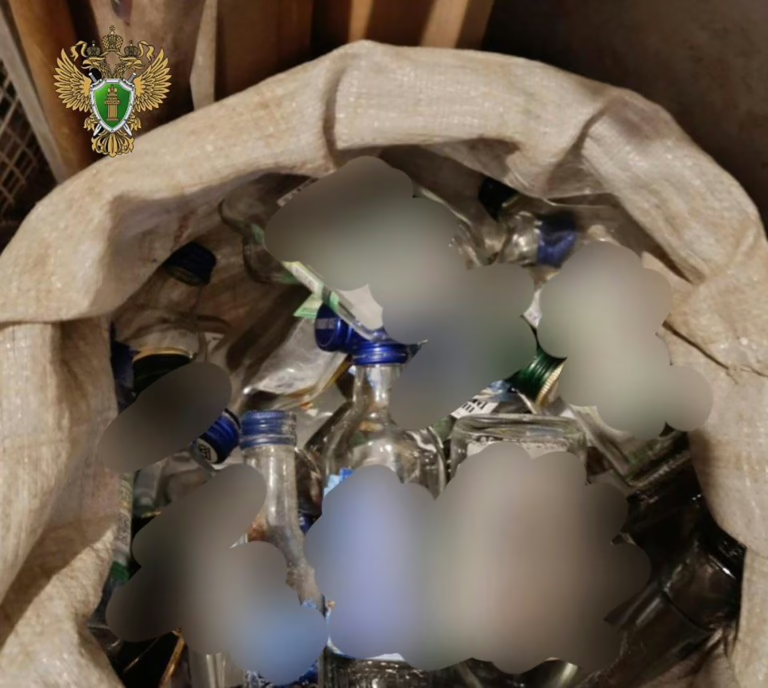A devastating tragedy has struck Russia’s Leningrad region, where at least 25 people have perished after consuming cheap, illegally produced vodka contaminated with methanol. This incident has sparked urgent alarm over a potential surge in fatalities and highlights a growing public health crisis.
Authorities disclosed that the victims purchased counterfeit vodka bottles sold at bargain prices, some as low as 90p each. Toxicology analyses revealed that six of the deceased had methanol levels in their bodies that were either fatal or dangerously close to it. Officials are concerned that many others may have consumed the toxic liquor, indicating that the death toll could climb further.

Among those arrested is Olga Stepanova, a 60-year-old nursery school teacher, suspected of distributing the poisonous homemade vodka. Investigations indicate she provided the lethal alcohol to a local middleman who then sold the counterfeit bottles; notably, his wife is reported to be among the victims. Law enforcement has also detained eight additional suspects connected to the illegal manufacture and distribution of the hazardous spirits. Over 1,000 litres of the contaminated alcohol have been seized.
Methanol, a chemical commonly found in products such as antifreeze, solvents, and fuels, is often used as a cheap substitute for ethanol in illicit alcoholic beverages. While methanol can mimic the smell and taste of ethanol, it is highly toxic when ingested. Once metabolized, it produces formic acid, which can cause severe organ damage, blindness, and death. Medical experts warn that consuming as little as 30 millilitres can be lethal.
“Methanol poisoning is a serious medical emergency,” stated Professor Oliver Jones from the Royal Melbourne Institute of Technology. “It impairs cellular respiration, preventing cells from effectively using oxygen. This leads to cell death, with the optic nerve being particularly vulnerable, potentially resulting in blindness or death.” Common symptoms include dizziness, nausea, seizures, and sudden vision loss.

In Russia’s poorer regions, homemade spirits remain widely consumed due to the prohibitive cost of legally produced vodka. This recent disaster echoes past mass poisonings in the country. For example, in 2016, over 60 people in Irkutsk died after drinking illicit bath oil laced with methanol, and in 2023, two individuals received nearly decade-long prison sentences for producing counterfeit cider linked to 50 deaths.
Methanol poisoning is also a persistent problem in parts of Southeast Asia, where hundreds suffer annually from consuming low-quality, inexpensive spirits, according to Médecins Sans Frontières. Experts attribute this ongoing threat to economic hardship, weak regulatory enforcement, and the demand for affordable alcohol, which continues to jeopardize vulnerable populations.
Authorities in Leningrad have pledged a comprehensive investigation into the incident. Meanwhile, local communities are left grappling with the tragic aftermath of a catastrophe that once again exposes the dangers lurking within Russia’s underground alcohol market.




















0 Comments